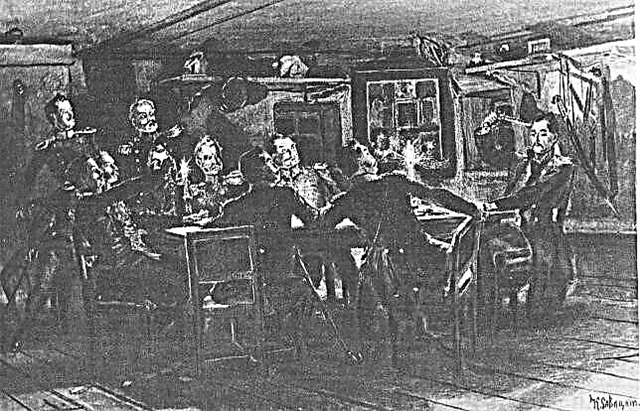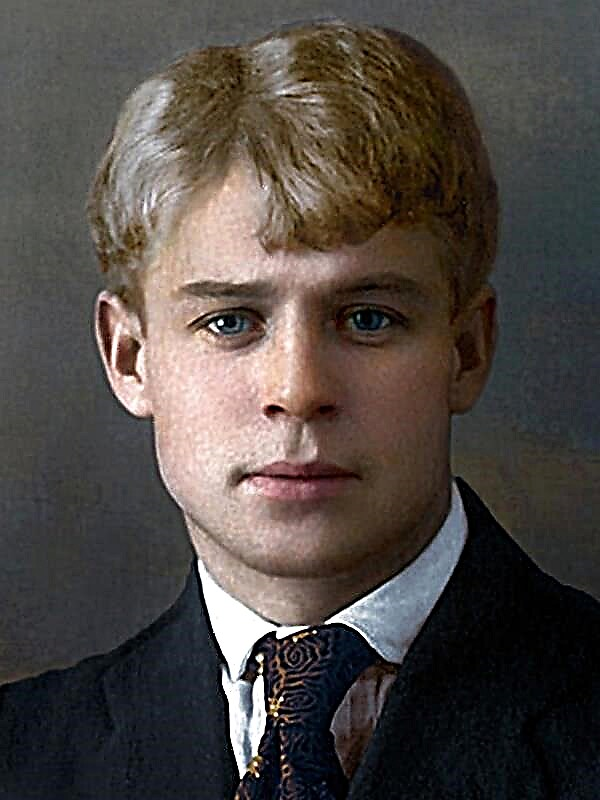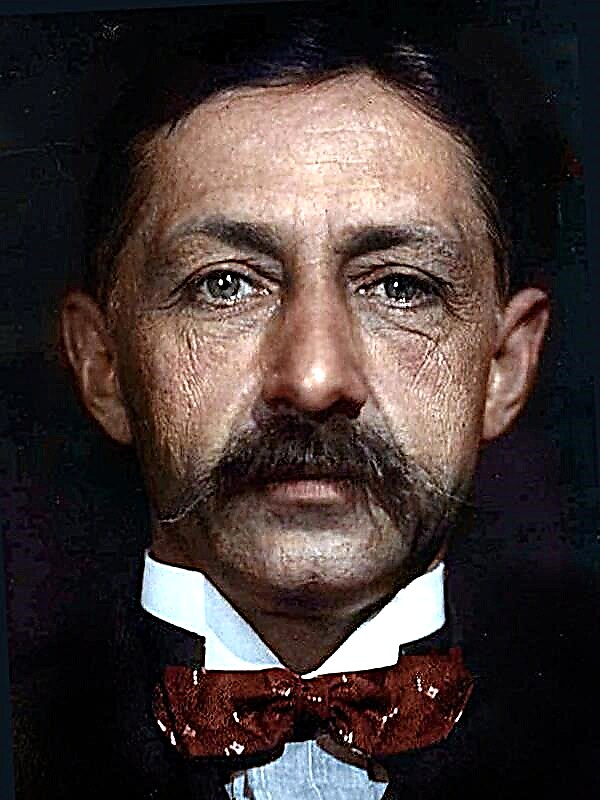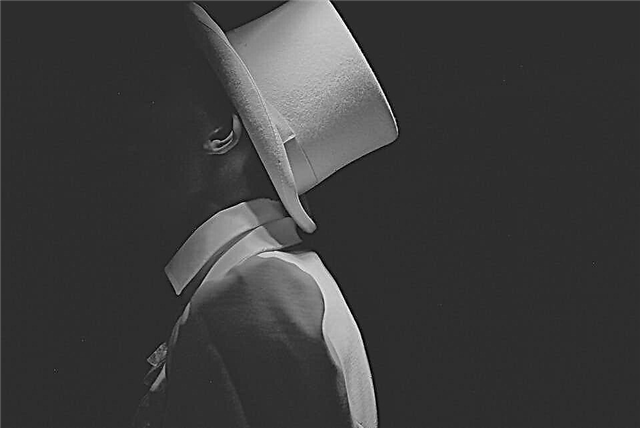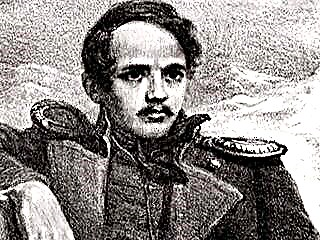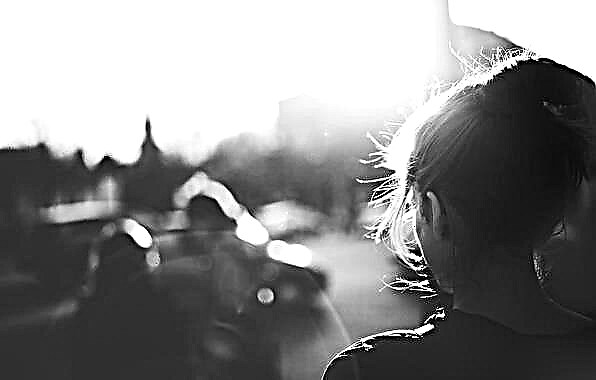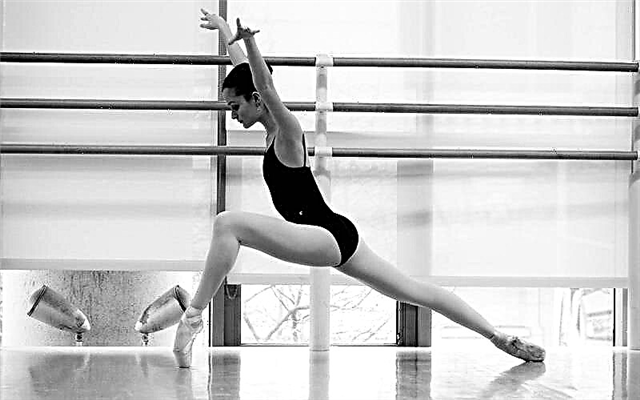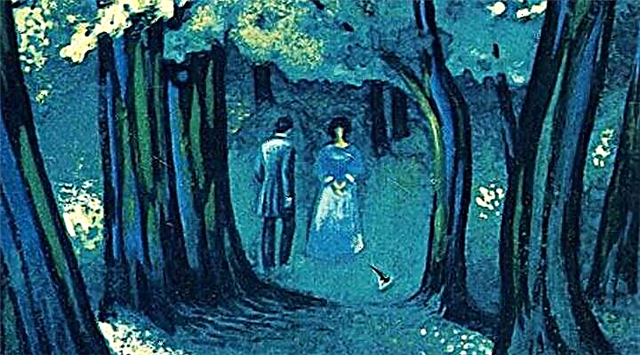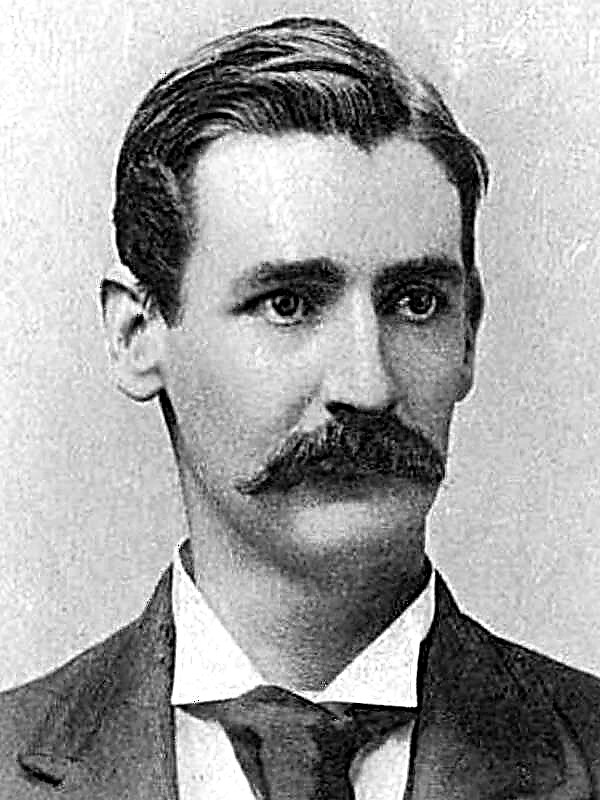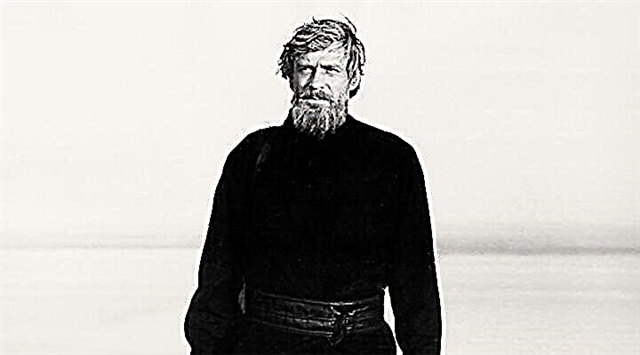The narrator (the narration comes from the first person) recalls how he lived in the estate of Belokurov in one of the districts of the T-th province six or seven years ago. The owner "got up very early, walked in a dressing room, drank beer in the evenings, and all complained to me that he did not find sympathy anywhere and anywhere." The narrator is an artist, but was so lazy in the summer that he wrote almost nothing. "Sometimes I left home and wandered around until late at night." So he wandered into an unfamiliar estate. Two girls stood near the gate: one “older, thin, pale, very beautiful” and the second - “young — she was seventeen to eighteen years old, no more - also thin and pale, with a big mouth and big eyes.” Both faces seemed familiar for some reason. He returned with the feeling that he had a good dream.
Soon, a carriage appeared in the estate of Belokurov, in which one of the girls, the eldest, was sitting. She came with a subscription sheet to ask for money for the fire victims peasants. Having signed in the sheet, the narrator was invited to visit to see, in the words of the girl, "how the admirers of his talent live." Belokurov said that her name is Lidia Volchaninova, she lives in the village of Shelkovka with her mother and sister. Her father once occupied a prominent place in Moscow and died with the rank of privy councilor. Despite the good money, the Volchaninovs lived in the country without a break, Lida worked as a teacher, receiving twenty-five rubles a month.
On one of the holidays, they went to the Volchaninovs. Mother and daughters were at home. “Mother, Ekaterina Pavlovna, once, apparently, beautiful, but now raw beyond her years, suffering from shortness of breath, sad, distracted, tried to entertain me with a conversation about painting.” Lida told Belokurov that the head of the council, Balagan, "had given all the posts in the county to his nephews and sons-in-law and was doing what he wanted." “Young people should be a strong party,” she said, “but you see what kind of youth we have. Shame on you, Petr Petrovich! ” The youngest sister, Zhenya (I face, for in her childhood she called “Miss,” her governess) seemed like a child. During lunch Belokurov, gesturing, knocked over a saucepan with his sleeve, but no one except the narrator seemed to notice this. When they returned, Belokurov said: “A good upbringing is not that you will not spill the sauce on the tablecloth, but that you will not notice if someone else does it. <...> Yes, a beautiful, intelligent family ... "
The narrator began to visit the Volchaninovs. He liked Mishu, she also sympathized with him. "We walked together, tore cherries for jam, rode in a boat <...> Or I wrote a sketch, and she stood by and looked with admiration." He was particularly attracted to the fact that in the eyes of the young provincial, he looked like a talented artist, a famous personality. Lida disliked him. She despised idleness and considered herself a working man. She did not like his landscapes because they did not show the people's needs. In turn, Lida did not like him. Once he started a dispute with her and said that her charity work with peasants was not only not useful, but harmful. “You come to their aid with hospitals and schools, but this does not free them from bondage, but, on the contrary, enslave even more, because by introducing new prejudices into their lives, you increase the number of their needs, not to mention that for books they should pay the Zemstvo and, therefore, bend their backs more strongly. " Lidin's authority was unquestioned. Mother and sister respected, but were also afraid of her, who took upon herself the “male” leadership of the family.
Finally, the narrator confessed to Zhenya in love in the evening, when she escorted him to the gate of the estate. She reciprocated, but immediately ran to tell her mother and sister. “We have no secrets from each other ...” When the next day he came to the Volchaninovs, Lida dryly announced that Ekaterina Pavlovna and Zhenya had gone to her aunt, in the Penza province, so that she would probably go abroad. On the way back he was caught up by a boy with a note from Misu: “I told my sister everything, and she demands that I break up with you ... I was not able to upset her with my disobedience. God will give you happiness, forgive me. If you only knew how my mother and I cry bitterly! ” He did not see the Volchaninovs anymore. Once, on the way to the Crimea, he met Belokurov in a carriage, and he said that Lida still lives in Shelkovka and teaches children. She managed to rally a “strong party” of young people near her, and in the last Zemstvo elections they “swept” Balagin. "About Zhenya, Belokurov only said that she did not live at home and was not known where." Gradually, the narrator begins to forget about the “house with a mezzanine,” about the Volchaninovs, and only in moments of loneliness he remembers them and: “... little by little, for some reason, it begins to seem to me that they also remember me, that they are waiting for me and that we are I'll meet ... I’m worrying, where are you? ”

